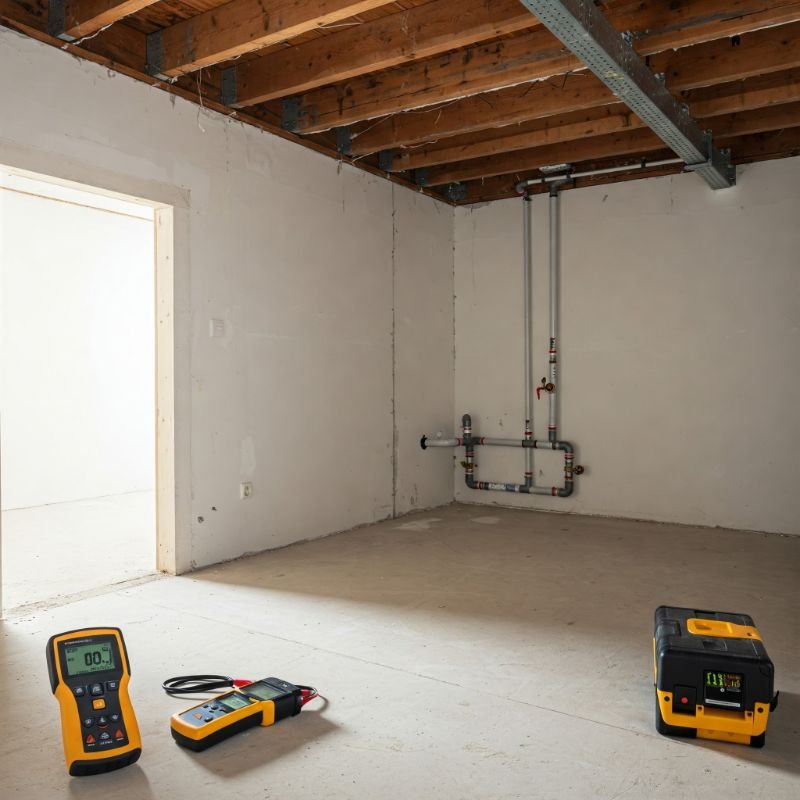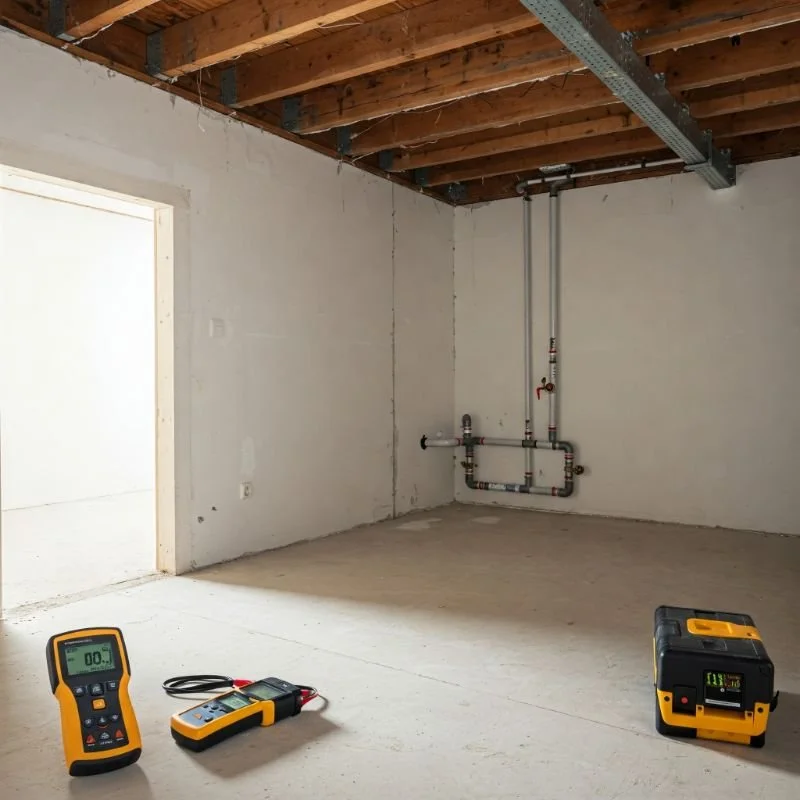How Much Does a Home Inspection Cost?
Wondering how much does a home inspection cost? Get the full scoop on inspection fees, hidden extras, what affects the price, and how to get the best bang for your buck before buying a house.
Buying a home? Congrats, that’s huge! But before you sign the dotted line and start picking out paint swatches, you’ve got one big box to check — the home inspection. And naturally, you're asking, "How much does a home inspection cost?" Great question! Because while it’s not the flashiest part of home-buying, it is one of the smartest moves you can make.
A home inspection gives you a sneak peek at what’s going on behind the walls, under the floors, and up on the roof. Think of it as a health check-up for your future house. But just like any check-up, there’s a price attached. So let’s break it all down — no fluff, no confusion — just straight-up facts, costs, and tips to help you get your money’s worth.
What Is a Home Inspection, Anyway?
Before we dive into the dollars and cents, let’s take a quick detour. What exactly does a home inspector do?
The Basics of a Home Inspection
A certified home inspector gives the property a top-to-bottom review, looking at:
The foundation and structure
Roof, gutters, and attic
HVAC systems (yep, heating and air)
Plumbing and electrical systems
Walls, ceilings, and floors
Windows and doors
Basement, crawl spaces, and insulation
Safety hazards and code violations
They won’t tear down walls or open up pipes, but they will flag anything fishy. And that’s where you get to decide: Is this house worth the price tag, or is it hiding more surprises than a mystery novel?
So, How Much Does a Home Inspection Cost?
Ah, the million-dollar (well, hopefully not!) question — how much does a home inspection cost?
Average Cost of a Home Inspection in 2025
Drumroll, please... The national average for a standard home inspection in the U.S. ranges between $300 and $600.
That’s a ballpark figure, of course. It could be lower or higher depending on a bunch of stuff (we’ll get into that shortly). But generally speaking, if your inspector’s quote is in that range, you’re in good company.
What Factors Affect the Cost?
Home inspections aren’t one-size-fits-all. Let’s dig into what actually drives the price.
1. Square Footage Matters
Bigger homes = longer inspection time = higher cost. Most inspectors charge based on square footage. A 1,200 sq. ft. condo might cost you $275, while a 3,500 sq. ft. home could run $600 or more.
2. Age of the Home
Older homes are like vintage cars — charming, but often hiding issues under the hood. Inspectors may charge extra for properties built before the '80s due to outdated wiring, old plumbing, or even potential asbestos.
3. Location, Location, Location
Urban areas and high-cost-of-living states (looking at you, California and New York) usually have steeper inspection prices than rural towns.
4. Additional Services
A standard inspection doesn’t always cover everything. Add-ons cost more:
Radon testing: $100–$200
Mold inspection: $100–$300
Pest inspection: $75–$150
Sewer scope: $150–$300
Asbestos testing: $200–$800
Bundle them together, and things add up fast!
How Long Does a Home Inspection Take?
On average, expect the inspection to last 2 to 4 hours depending on the home’s size and condition. Larger homes or homes with known issues? Yep, they’ll take longer.
Who Pays for the Home Inspection?
In most cases, the buyer foots the bill. But here’s a twist — if you’re selling and want to impress potential buyers, you can schedule a pre-listing inspection yourself. Smart move, right?
Is a Home Inspection Worth the Cost?
Short answer? Heck yes!
Here’s the thing — skipping a $500 inspection might seem like a win in the short term. But discovering a crumbling foundation or faulty wiring after closing? That could cost thousands. Think of the inspection as a one-time investment that protects your biggest investment.
How to Save Money on a Home Inspection
No one likes overpaying. Here’s how to keep your wallet happy.
1. Compare Quotes
Don’t settle on the first inspector you find. Call around, ask for quotes, and read reviews.
2. Bundle Tests
If you need radon, mold, or pest testing, ask for a bundle discount. Many inspectors offer package deals.
3. Avoid Cheap, Unlicensed Inspectors
If a quote seems too good to be true, it probably is. A bad inspection can cost you way more in the long run.
What’s Included in a Home Inspection Report?
A solid report should give you a clear picture of:
What’s working just fine
What needs minor repairs
What needs major fixing — ASAP
Photos, diagrams, and notes
Good inspectors won’t just hand you a thick PDF and vanish. They’ll walk you through it and answer every question you’ve got.
What’s Not Included? (And Why You Might Need More)
Don’t assume the inspector’s checking everything. Here’s what’s usually not included:
Septic tanks
Swimming pools
Wells
Chimneys
Appliances (like stoves, washers, etc.)
Hidden pests (unless you request it)
If you want those checked, you’ll need to hire specialists — or ask your inspector for a recommendation.
When Should You Schedule the Inspection?
Right after your offer is accepted — and before the closing process goes full steam ahead. Most contracts give you a 7–10 day window for inspections, so don’t dilly-dally.
Can You Attend the Inspection? (Hint: You Should)
Absolutely! In fact, it’s highly recommended. You’ll get a better understanding of any red flags and can ask questions on the spot. Plus, seeing that wonky floorboard or roof leak in person? Much better than just reading about it later.
What Happens After the Inspection?
Here’s the typical game plan:
You get the inspection report.
You review it (with your agent if needed).
You decide whether to:
Proceed as planned
Request repairs
Negotiate price
Walk away (gulp!)
Should You Skip the Inspection in a Hot Market?
We get it — bidding wars are real, and some buyers waive inspections to gain an edge. But tread carefully. Skipping the inspection might help you win the house, but could also hand you a five-figure headache later. If you must skip it, at least consider a walk-and-talk consultation — a quick visual check that gives you a snapshot of major issues.
Conclusion
Alright, let’s bring it home — pun totally intended. So, how much does a home inspection cost? Well, it depends on your house size, location, and how many extras you need, but expect to pay somewhere in the ballpark of $300 to $600.
And even if it feels like just another expense in the marathon of home buying, trust us — it’s worth every penny. An inspection gives you the confidence to move forward (or walk away!) with your eyes wide open.
At the end of the day, your future home deserves a little TLC before you settle in. And your wallet? It’ll thank you later.
Ready to schedule that inspection? Go for it — you’ve got this.
Read next: How Long Does a Typical Home Inspection Take?
Frequently Asked Questions
Q1: How much does a home inspection cost for a condo or townhouse?
Typically less than a full house inspection — around $200–$400 — because there’s less square footage and fewer major systems (like roofing or exterior walls) to assess.
Q2: Can I negotiate the home inspection cost?
In some cases, yes! Especially if you’re bundling additional services. Always ask — it never hurts.
Q3: Are home inspections mandatory?
Nope, they’re not legally required. But skipping one is kind of like buying a used car without popping the hood — risky business.
Q4: Does homeowners insurance cover inspections?
No, insurance kicks in after you own the home — not during the buying process. Inspections are totally out-of-pocket.
Q5: What if the seller already had an inspection done?
You can review it, sure. But it’s usually best to get your own. That way, the inspector is working for you — not them.





